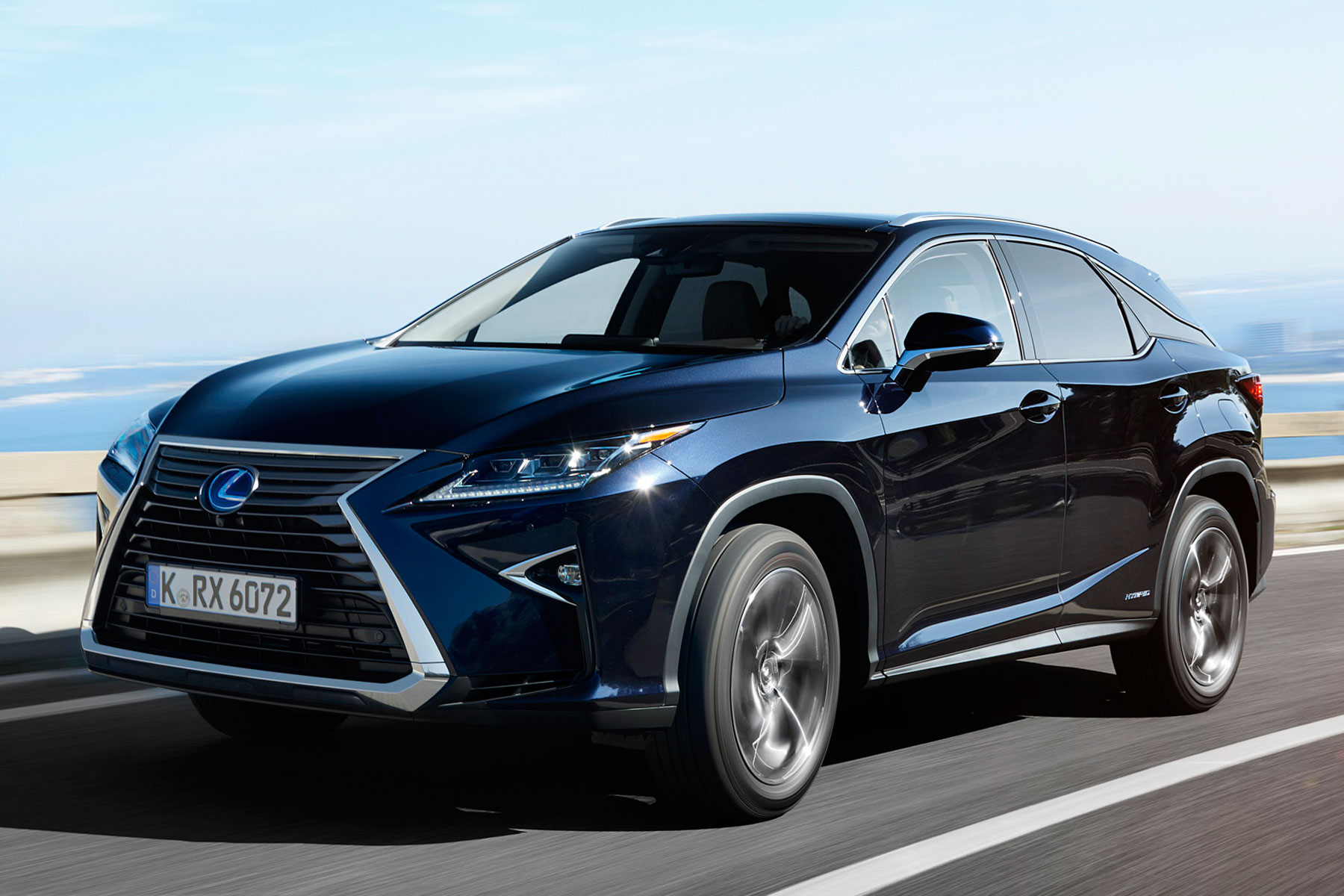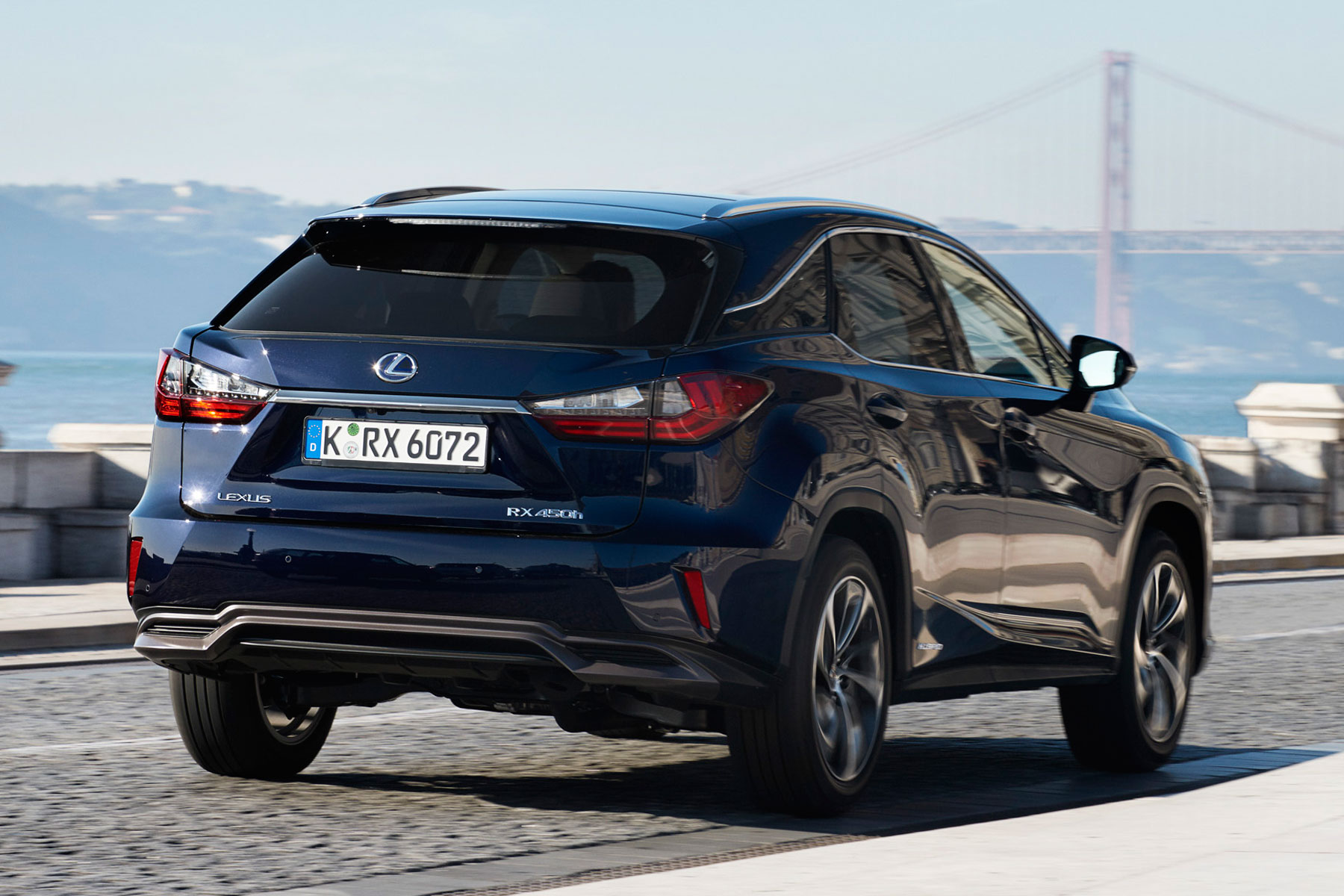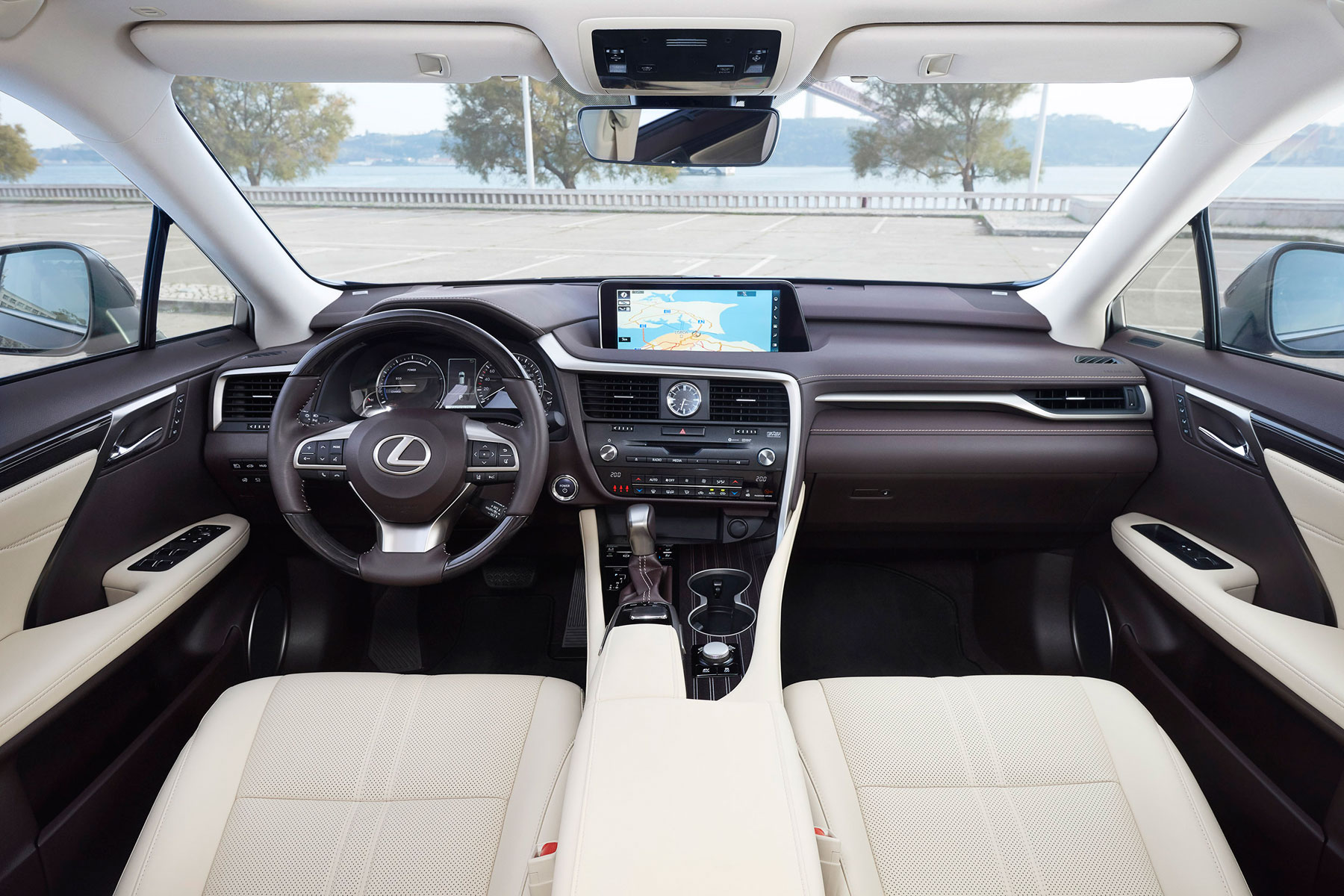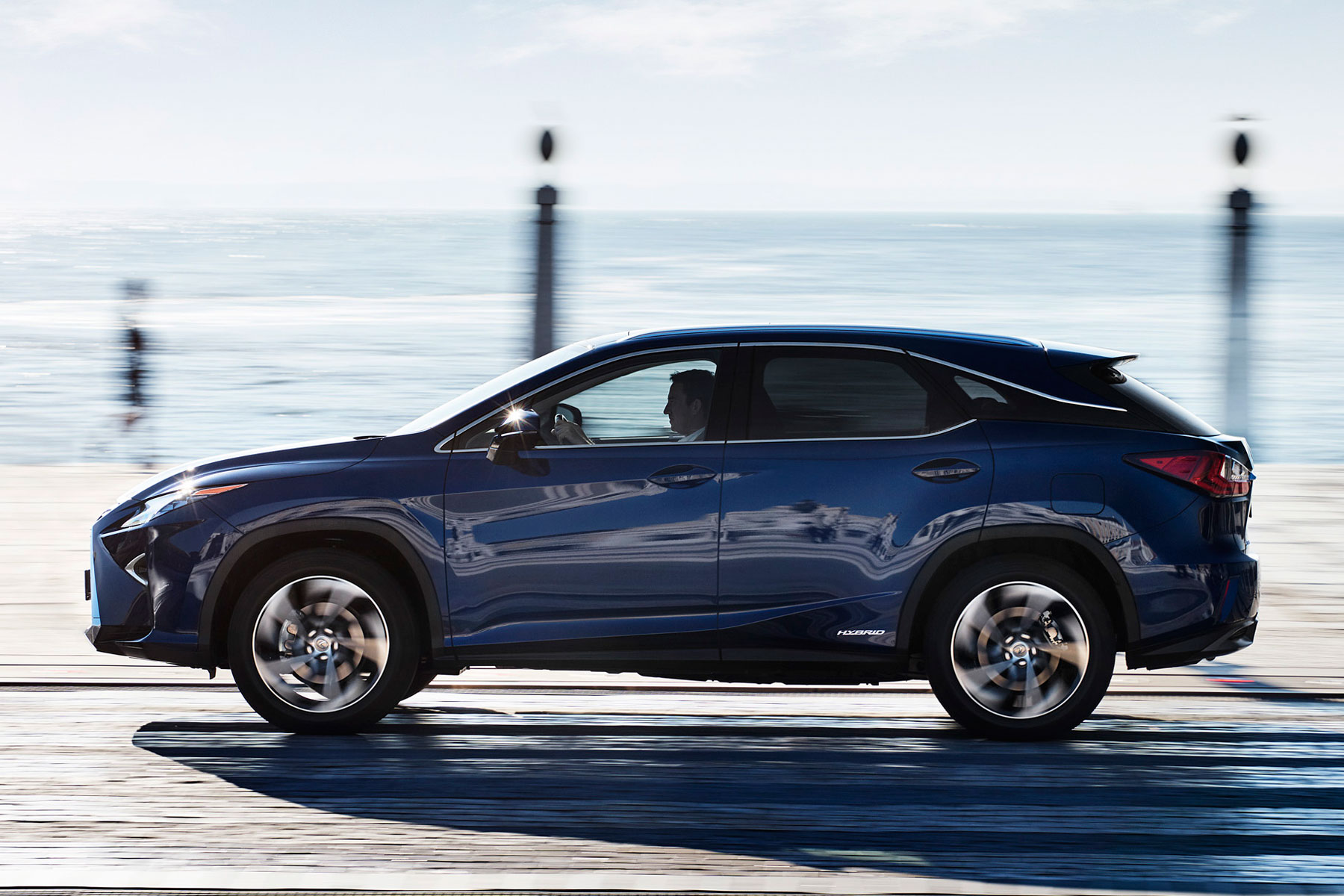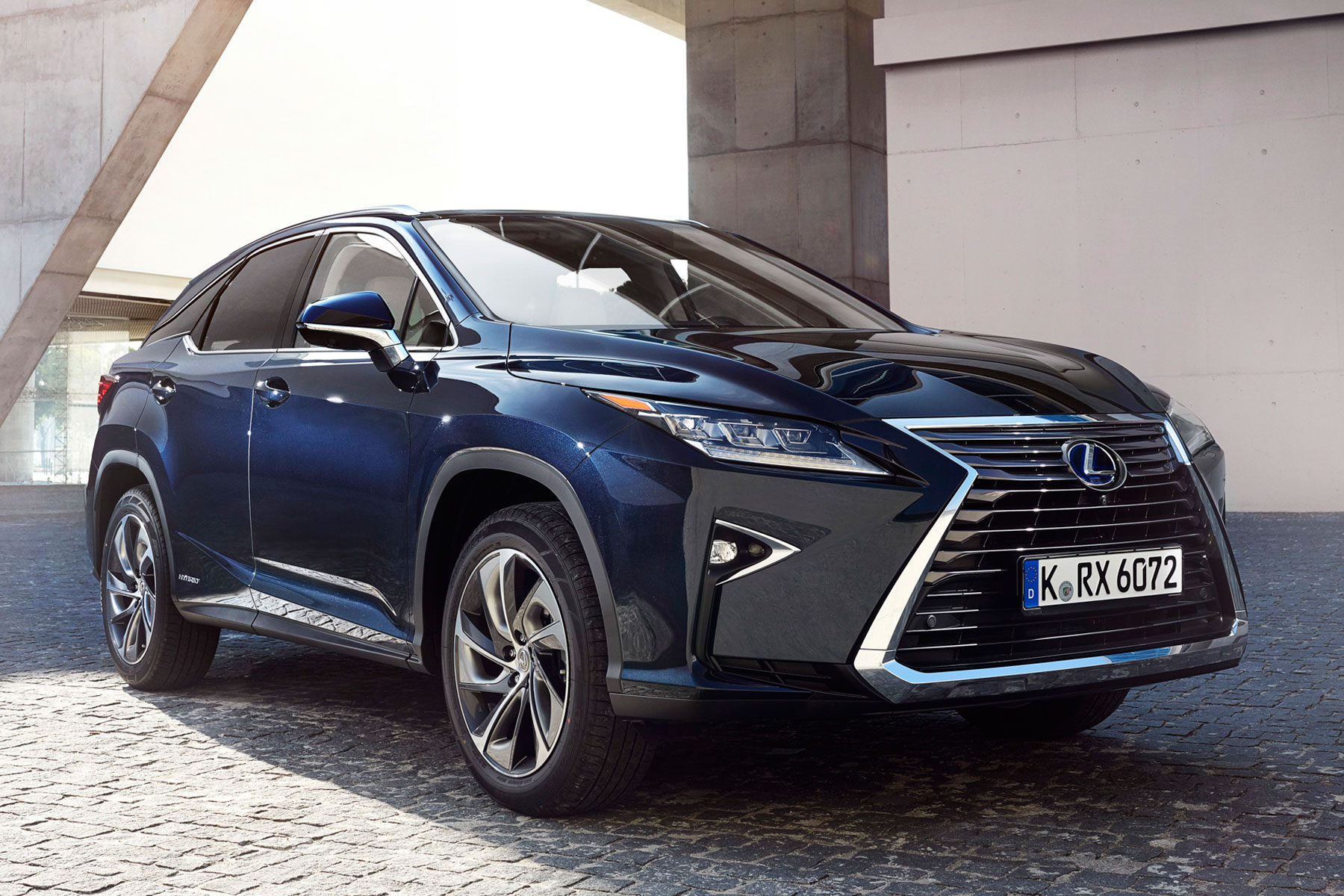The Lexus RX is the SUV that’s been offering an eco-friendly alternative to gas-guzzling rivals since its launch in 1998. In true Lexus form, it has always snubbed diesel engines in favour of petrol hybrid models, and offered exceptional fuel consumption and carbon dioxide emissions figures.
It’s an important vehicle for Lexus – accounting for roughly a third of cars the brand sells in Europe. Yet it’s always remained cool and understated. Big and brash is what the German manufacturers do so well, ‘quietly competent’ is where Lexus has carved its niche.
Sales have been building steadily in recent years, and Lexus is on-track to sell 13,500 cars in the UK in 2015. It hopes to break the 16,000 barrier in 2016 – with 3,500 of those being RX models. They are tiny figures compared to other premium manufacturers, but for Toyota’s flagship brand, which has only been around in the UK since 1990, it’s respectable.
And, of course, there’s no denying that the recent Volkswagen diesel emissions scandal is likely to encourage customers to look elsewhere rather than defaulting to a diesel SUV. Lexus wouldn’t gloat on this – that’s not Lexus’s style – but it’s fair to assume they’re going to benefit from the fallout.
The 2016 Lexus RX is the fourth-generation model, heavily revamped over its predecessor. It’s based on the same platform, but has been extended, and the engines have been revised.
On the road
There are two engines available in the RX: the same 2.0-litre turbocharged petrol introduced in the NX earlier this year and a 3.5-litre hybrid petrol.
Just 10% of UK buyers are expected to opt for the entry-level petrol. And there’s little reason to as it’s thirsty – returning just 34.9mpg in the combined test when fitted with 20-inch alloys. But it’s not particularly fun to drive, either. If you’re buying a large petrol SUV, you’re probably expecting thrills, and the 2.0-litre turbo doesn’t offer them.
Understandably, the Lexus 350h hybrid is going to be much more popular. This combines a 3.5-litre V6 petrol engine with an electric motor to produce 312hp and reach 62mph in 7.7 seconds.
As is increasingly common with premium vehicles such as this, the driver can choose between different drive modes and, on Premier and F Sport models, can tune the adaptive variable suspension depending on whether you’d prefer a firmer, sportier ride or a more relaxed cruise.
We suspect most buyers will leave the RX in ‘normal’ mode. Opting for a sportier set-up means the CVT gearbox makes more noise than usual, and it feels unnatural to attempt making real progress in this car. The electronic steering, although improved over its predecessor, still offers little in the way of feedback, while body-roll is as you’d expect for an SUV of this size.
There’s no need to make the suspension firmer, either – Lexus has increased the body’s rigidity for the new RX, and it already provides a harsher ride than you may expect from Lexus.
When you a adopt a more restrained driving style, the RX makes for a much more likeable SUV. Around town, it’ll bimble in electric-only mode, and it’s hardly noticeable when the engine cuts in. On the motorway, unless you’re clumsy with the accelerator pedal and wind up the CVT gearbox, the RX will cruise in near-silence, doing a commendable job of masking wind and road noise.
We say ‘near-silence’. When cruising at A-road speeds, we noticed a few minor high-pitched noises from the hybrid system. In reality, they’re much less intrusive than a rumbling diesel engine, but they could irritate.
On the inside
The Lexus RX is more spacious than before, with its platform lengthened by 120mm and seats lowered by 19mm to increase headroom. The hybrid system does eat up boot space slightly – as it always has done – but the boot isn’t small and the rear seats can be folded down to create more space.
Lexus says it has concentrated on improving the centre console but – as a downside of a car having so much kit – it’s still very cluttered. Despite having a huge 12.3-inch navigation screen on all models from the mid-range Luxury up, there are still stacks of buttons to operate everything from the climate control to the lane-keep assist (standard on all models). Competitors optimise a large touchscreen to incorporate all these controls, but Lexus is sticking with the old-fashioned system of using buttons. Everywhere.
The interior does manage to feel very premium, but no more so than rivals. It doesn’t do anything particularly special in this regard, and we’d go as far as questioning the taste of such features as wooden steering wheel found on the top-spec Premier model.
Running costs
Running costs are going to be a huge factor in the purchase of most RX 350h models. Officially, this returns a respectable 51.4mpg on those fitted with 20-inch alloys (Luxury and upwards), and 54.3mpg on the entry-level hybrid SE model. That equates to 127g/km and 120g/km respectively.
Being a typical hybrid powertrain, rather than a plug-in model like those offered by German manufacturers, these figures are likely to be achievable in everyday conditions. Plug-in models rely on being charged before the official test, significantly distorting the official figures. We questioned Lexus about why they weren’t launching a plug-in hybrid RX, but they simply said there’s little market demand for it.
On the face of it, it would seem that the German manufacturers disagree. But, market research around the Prius model (which is available as a plug-in hybrid) has found that many people buy them for the tax benefits but never plug them in. When the RX is available as a hybrid with low tax rates, there’s little need for a plug-in version. The technology is there, however, if Lexus changes its mind.
Verdict
Against rivals that are increasingly opulent and in-your-face, the RX will continue to have a hard time standing out. Its cabin is fine, but not as special as you’d perhaps expect in this sector, and it’s anything but thrilling to drive. It’s not a particularly practical proposition either, with a small boot, just the five seats, and limited towing capabilities.
Where it excels, however, is being a relaxing and understated alternative to brash, diesel German SUVs. You’ll be making a quiet statement buying a Lexus RX – and you’ll save money doing so. Starting at £46,995 in hybrid form, with finance packages from £559 a month for private buyers and BIK tax of 20% for business users, the RX offers excellent value for money.
Rivals
BMW X5
Audi Q7
Mercedes-Benz GLE
Range Rover Sport
Volvo XC90
Model line-up
RX 200t S: £39,995
RX 200t Luxury: £45,995
RX 200t F Sport: £48,995
RX 450h SE: £46,995
RX 450h Luxury: £49,995
RX 450h F Sport: £52,995
RX 450h Premier: £57,995
Specifications
Model: RX 450h F Sport
Engine: 3.5-litre V6 petrol hybrid
Price: £52,995
Power: 312hp
Torque: 247lb-ft
0-62mph: 7.7 seconds
Top speed: 124mph
Fuel economy: 51.4mpg
CO2 emissions: 127g/km
